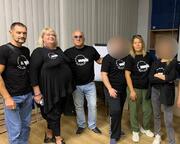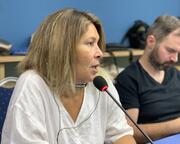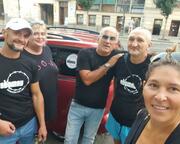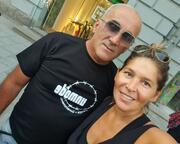On September 7th and 8th, in Tbilisi, Georgia, the fifth annual meeting of the Consortium "Health and Rights of Prisoners" (PHRC) took place. More than 30 participants attended the event, including civil society activists, representatives of former prisoner communities, people living with HIV, and drug users.
The meeting was attended by practicing lawyers, harm reduction specialists, representatives of international human rights organizations, and non-governmental organizations from eight European countries, including Ukraine, Moldova, Georgia, Romania, France, the United Kingdom, and rf
International human rights advocates discussed mechanisms for access to medical release for seriously ill prisoners. The traditional PHRC Consortium meetings have become an effective platform for exchanging experiences and enhancing qualifications in using United Nations tools for legal proceedings and advocacy.
The UnMode team shared their experience in interacting with international human rights bodies and government structures. We discussed our organization's activities in all represented countries and presented research data on the use of withdrawal syndrome as a form of torture.
Furthermore, we raised the issue of the availability of opioid agonist therapy in correctional institutions in Ukraine and presented a video in the "living book" format, featuring three stories of former Ukrainian prisoners who were illegally taken by the Russian army from the temporarily occupied Kherson region in the autumn of 2022.
Together with international experts, we analyzed a series of legal processes and advocacy actions in the countries represented at the meeting and discussed the coordination of the Consortium's strategic actions.
Human rights defenders emphasized the importance of protecting the health of prisoners and the need to make medical care in prisons more independent and integrated into the overall healthcare system. Another strategic aspect is ensuring access to adequate care and treatment for drug-using prisoners.
The meeting of the Consortium "Health and Rights of Prisoners" in Tbilisi served as a platform for exchanging experiences and enhancing the qualifications of human rights defenders and civil society activists from different European countries. It underscored the importance of cooperation and the exchange of experiences in achieving common goals to improve the living conditions of prisoners.
The conference took place within the framework of the "Consortium for the Protection of Prisoners' Health and Rights," an information and advocacy platform of civil society initiated by EPLN in 2019 to provide access to medical services and protect the health of people in prisons in European countries.
The Consortium provides support to local civil society organizations and human rights communities, as well as to prisoners/former prisoners and drug users in monitoring the effectiveness of health protection in places of deprivation of liberty, documenting cases of fundamental rights violations, and strengthening the legal protection of sick prisoners in national and international courts, with particular attention to prisoners living with HIV and drug-using prisoners.





